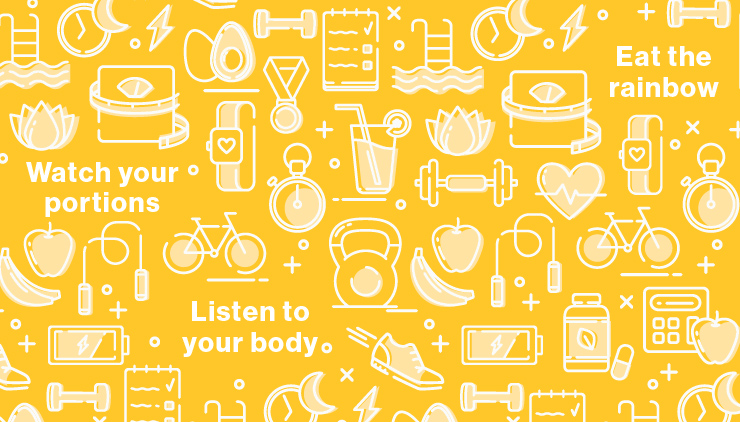Search Sunny
Looking for a topic? Use our search tool to find answers to your questions.

You may find yourself pressed for time, under stress and opting for convenience foods to get you through the day. However, low nutrient-dense foods can cause energy deficiency and low performance on assignments and exams. Choosing the right foods can help you feel better, manage your stress and give you sustained energy to get through the rest of the semester. Here are some easy ways to incorporate a healthy diet into your routine.
Eating a meal or light snack within the first two hours of waking improves energy levels and brain function. Breakfast jump-starts your body, can lower cholesterol and, if you choose wisely, can provide essential nutrients to support your overall health. Some ideas:
We know how difficult it can be to attend back-to-back classes. Packing light snacks to munch on in between lectures can provide a boost in energy, concentration and will keep you away from the vending machines. In the morning, consider packing:
Come up with a game plan before you go. Try looking at the day’s menu and mapping out what you want before you get there, and overload yourself with all the options. You can also pile your plate with veggies before adding entrees. This boosts your nutrient intake while allowing you to get still what you love (hello, chicken enchiladas at Manzanita 😍).
It’s easy to overeat when you’re overserving yourself. Whether eating at the dining hall or cooking a meal at home, remember to watch your portion sizes. A scoop (or cupped palm) of rice or pasta is often one serving, as is about a half cup (or the size of the palm of your hand) for proteins, like a grilled chicken breast. If you’re still hungry after your meal, you can still go back for seconds, it’s all about learning what works for you and your nutrient needs!
![]()
Pay attention to how the food you’re eating makes you feel. Try eating slowly and eliminating distractions like using your cell phone or watching TV. You may find that you’ll be satisfied sooner and won’t get the infamous mid-afternoon crash.
Look for leafy greens, crunchy carrots, purple grapes, ruby-red strawberries, yellow squash, classic bananas, cherry tomatoes, kiwi, and so on! Try to get all seven by the end of the week - you’ll be a wellness warrior!
While one or two cups of coffee is acceptable, limit your caffeine intake to about 200-300 mg daily. Be sure to drink plenty of water (we’re in the desert, after all), and you’ll find that you don’t need extra coffee or energy drinks to keep you alert throughout the day.
Find an eating schedule that works for you and stick to it. Your body will adjust to your routine, recognize fullness cues, and balance hunger, keeping you from overeating or even skipping meals.
Getting enough sleep is essential for optimal daily functioning. When well rested, you’re more likely to make choices that promote a healthy lifestyle—physically, emotionally, and mentally.
All foods fit. A balanced diet includes foods of all kinds. Don’t restrict yourself or feel guilty for eating treats. Not only could this lead to binge eating later, but you’ll also miss out on quality time with friends.
Looking for a topic? Use our search tool to find answers to your questions.